Newsletter
Go beyond the scoreboard
Get the latest on L.A.'s teams in the daily Sports Report newsletter.
You may occasionally receive promotional content from the Los Angeles Times.
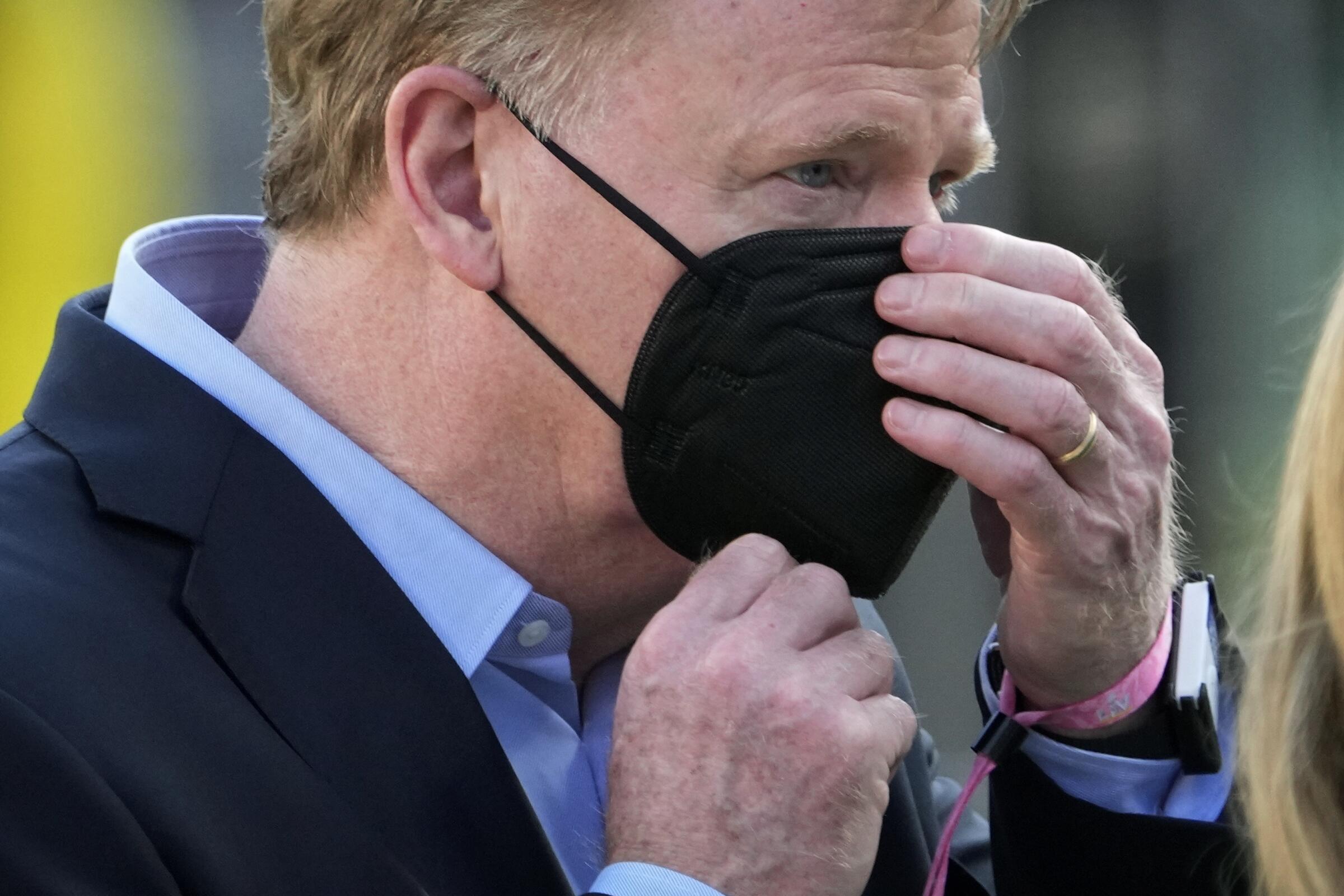
The NFL is about to embark on its second season during the COVID-19 pandemic.
The 2020 season had its problems, often on a daily basis, but the league managed to pull it off in full, without any cancellations.
The Times’ Sam Farmer recently spoke with commissioner Roger Goodell and more than two dozen people — league executives, front-office personnel, players and medical professionals — close to the situation to find out what happened behind the scenes during that unprecedented season.
Here are five things we learned:
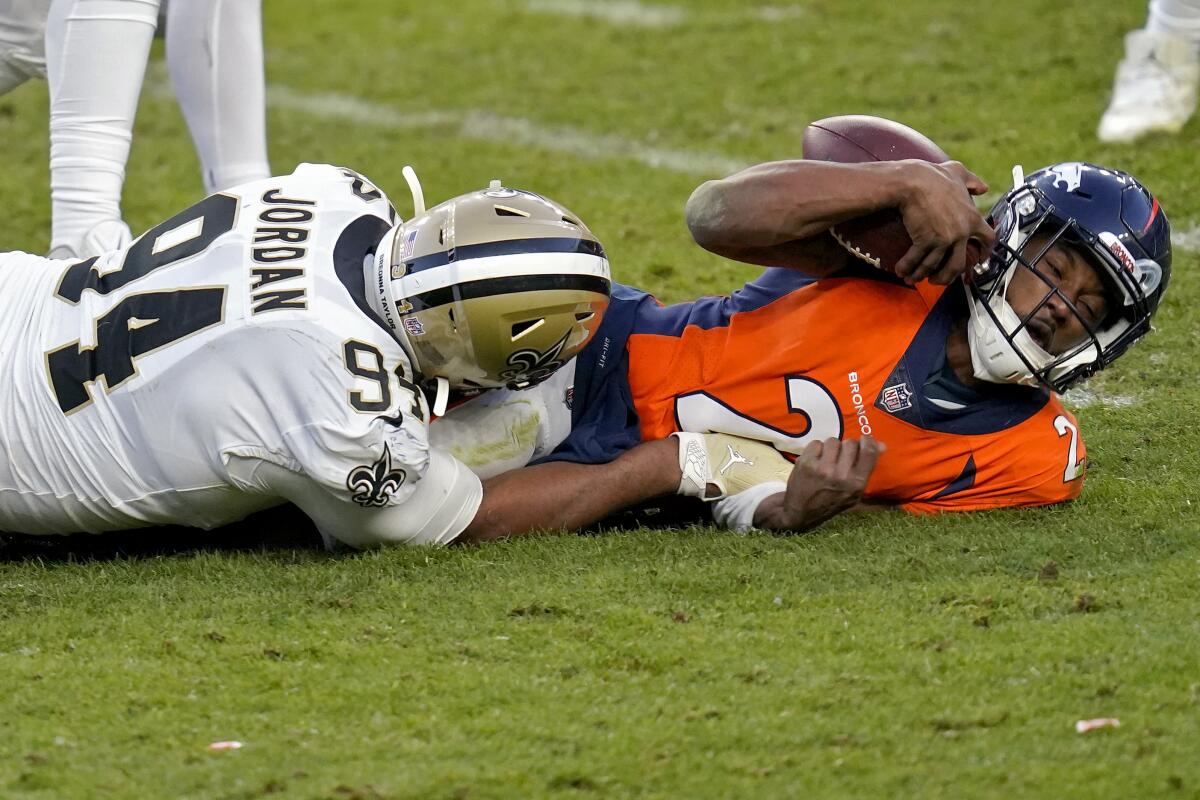
The NFL bent over backward to play a Week 12 game between Pittsburgh and Baltimore during a Ravens coronavirus outbreak. The game, originally scheduled for Thanksgiving night, was finally played the following Wednesday afternoon after three postponements.
The league did not go to such lengths to help the Denver Broncos that same week when all four of their quarterbacks were ruled out as close contacts, forcing the team to start practice-squad receiver Kendall Hinton at quarterback in a 31-3 loss to the New Orleans Saints.
The NFL had a plan to navigate the COVID-19 pandemic; in the face of the Delta variant, that plan—and the alliance that made it a success—will be put to a new test
Farmer found out why the NFL wouldn’t budge concerning the Broncos:
“John Elway, Denver’s president of football operations, made several frustrated pleas to Goodell to postpone the Sunday game until Tuesday, when the quarterbacks would be available. The league denied those requests because surveillance video from Denver’s facility showed the quarterbacks had tried to fool the system. They had removed their contact-tracing devices and put them in the four corners of the meeting room, then they sat together to watch film. That close contact automatically made them ineligible to play.”
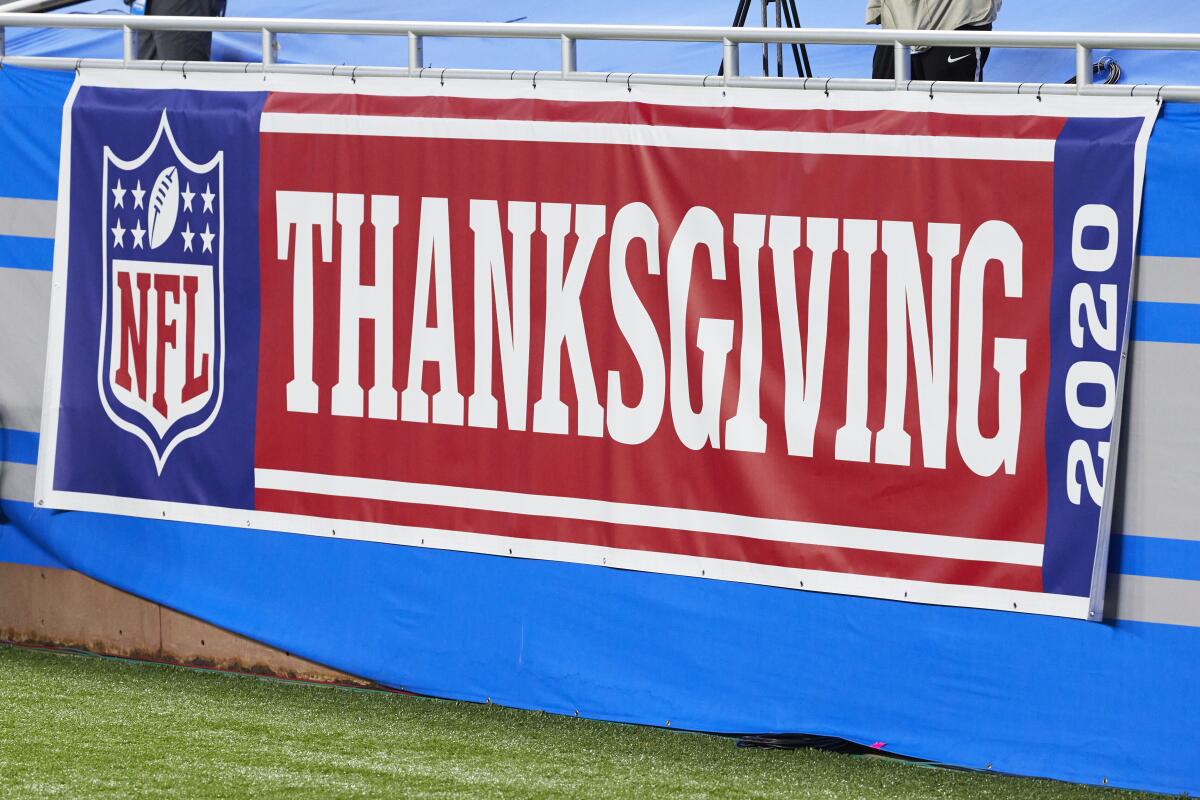
As other leagues staged abbreviated seasons and quarantined their players in hopes of shielding them from COVID-19, the NFL was determined to start on time and play a full season.
But, Farmer wrote, there were backup plans in place:
“Although the league never publicly veered from its position that the season would start on time, behind the scenes, Goodell and schedule maker Howard Katz devised contingency plans.
Players have switched teams, rules have changed, milestones are ready to be reached. Everything you need to know about the 2021 NFL season.
“One called for a 10-game season that would start on Thanksgiving Day, with the Super Bowl pushed to late February. The CBA allowed for the league to delay the Super Bowl all the way to mid-March without permission from the union.”
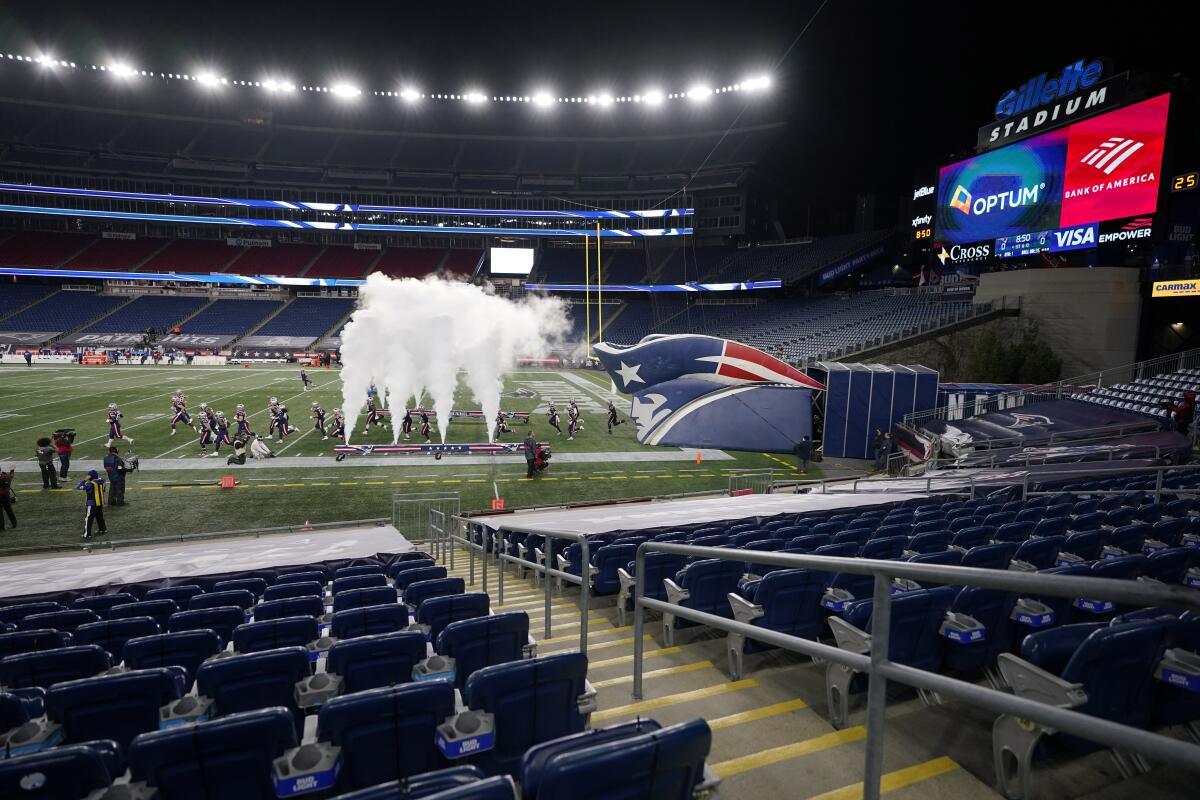
There was strict silence on any potential scheduling changes, with many team owners kept in the dark.
“We didn’t want people to think that we were thinking about anything but starting on time,” Goodell told Farmer. “I didn’t even reveal it to our clubs, because then they would have started talking about it and thinking about it.”
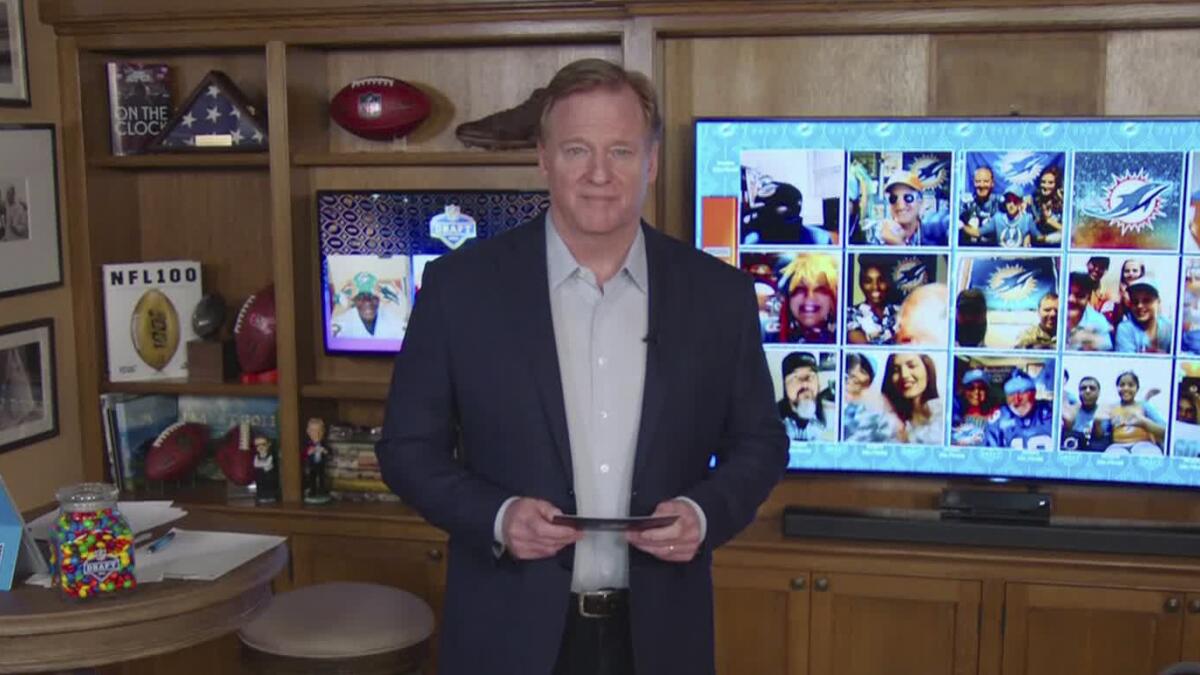
During the early months of the pandemic, the NFL scrapped its planned Las Vegas draft extravaganza in favor of a safe, virtual version anchored by Goodell in the basement of his home.
The pushback within the league was vehement, with Chargers general manager Tom Telesco among the nonbelievers.
“I’m not stubborn and inflexible; I can change,” Telesco told Farmer. “But when you’re part of drafts and running drafts for years, there’s one way of doing it.”
But the three-day virtual draft evolved into an unexpected sensation, prompting a note to Goodell from a general manager with a changed perspective.
“I just wanted to let him know that he was right and I was wrong,” Telesco told Farmer. “I’m glad we followed his lead with that.”
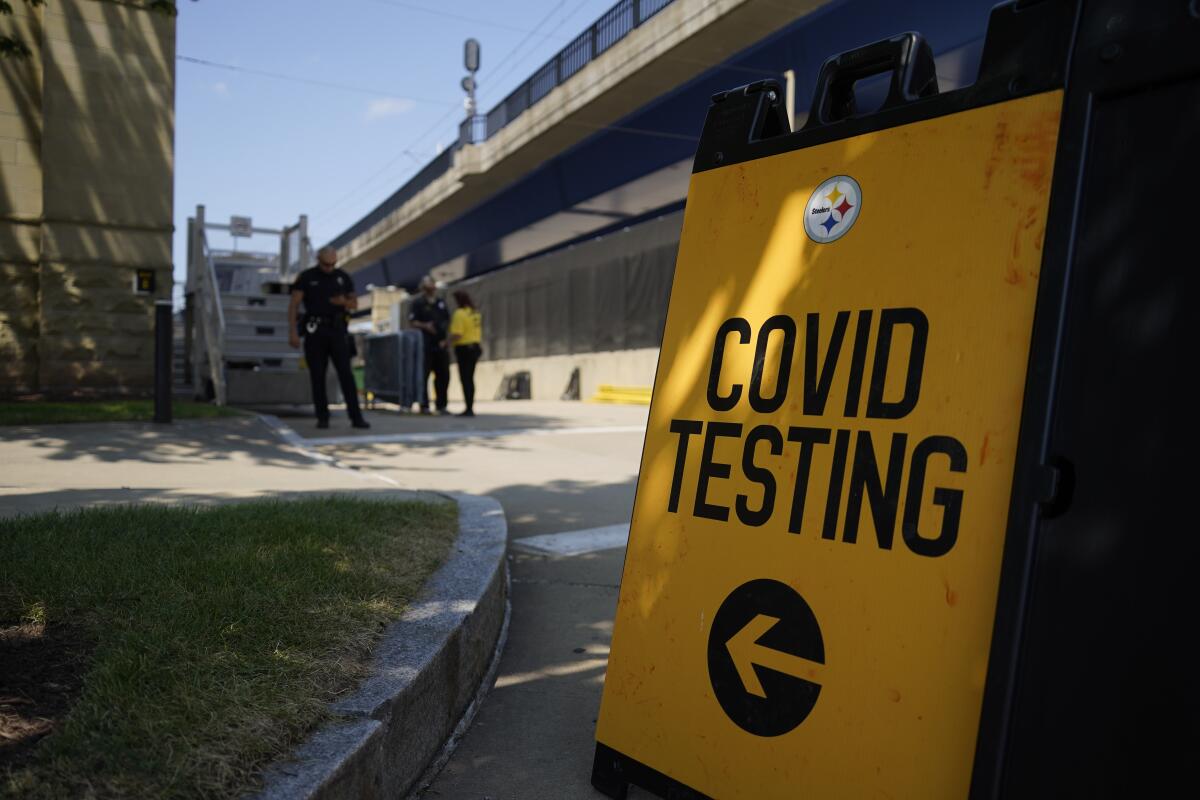
From Farmer:
“The daily testing had a bumpy start. In the first week, a minor earthquake in Southern California, a hurricane in Florida, and a driver transporting tests who hit a deer resulted in various lab delays. The league pressed for better testing, and near the end of the regular season transitioned from overnight results to rapid PCR tests, developed by San Diego-based Mesa Biotech, that produced results within 30 minutes. The commissioner continually pushed for better and more efficient solutions.”
Go beyond the scoreboard
Get the latest on L.A.'s teams in the daily Sports Report newsletter.
You may occasionally receive promotional content from the Los Angeles Times.